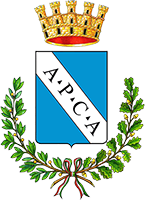
Countless threads bind the traditions of this land, made up of the fragrance of wines, roasts, and the green of herbs and, in many cases, the experiences of man. Cooking is a joy, and, here, it is an aspect of culture; it is a homemade and patient cooking, very original, which finds its roots in the products of the land and in the memory of ancient disciplines. The still unspoilt traditions are linked to the uses and customs of a small agricultural-rural world. Important are the tasty first courses, omelettes with herbs; with persa or marjoram; the variety of soups, such as chickpea, pumpkin, pea and broad bean soups.
Then the game, including the “palombaccio alla leccarda”, a typical Amero dish, in which the pigeon is roasted on a spit over low heat and seasoned with a special sauce called “leccarda” to be savoured on slices of toasted bread. In addition, bread, pasta and backery products, which are processed both industrially and by hand. Among these excellences, we cannot forget to mention the typical “manfricoli” and the traditional wood-fired bread and pizza. Then there are the typical desserts, with seasonal delights such as the so called “panpepato” at Christmas, biscuits with must in autumn, and both cheesy and sweet Easter pizzas.
In this territory, the cultivation of olives, widespread since ancient times, produces a particularly popular extra virgin olive oil, which is the real secret of the local cuisine. The qualitiy and the purity of this product is ensured by the many local mills, which still obtain it by grinding with a stone mill or by traditional methods. Each year, from November to February, a lot of local mills introduce the “novello” oil, with tastings based on bruschetta, slivers of toasted bread with garlic (for those who like it) and plenty of oil. A protected designation of origin, covering the Colli Amerini, exists and the Municipality of Amelia is part of the Association “Strada dell’Olio DOP Umbria”.
This association was set up to fully promote this typical product of excellent quality, extra virgin olive oil, made from the Moraiolo, Leccino, Rajo and Frantoio varieties, in an area that is still largely free of parasites and therefore does not require the use of fungicides, allowing for completely natural cultivation.
The wines produced in this area also have all the requisites to satisfy the most demanding tastes; Amelia and its territory are part of the Etruscan-Roman Wine Route, which aim is to make the excellent productions of the wineries involved known and appreciated. An itinerary through the best wineries in the area allows visitors to taste the D.O.C. “AMELIA” wines, which offer a variety ranging from the traditional white, red and rosé to the fine and delicate Malvasia and Novello


